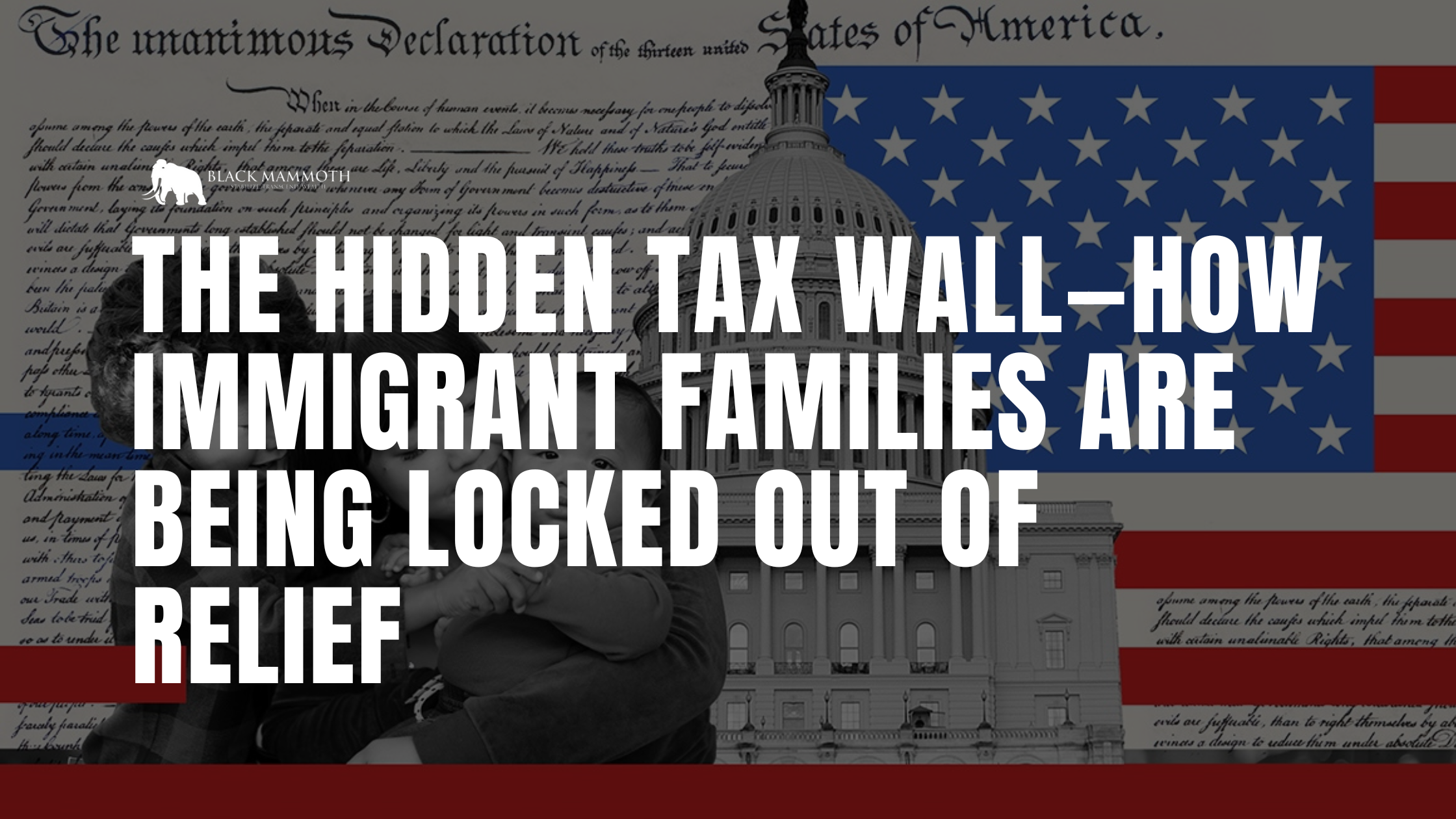The Hidden Tax Wall—How Immigrant Families Are Being Locked Out of Relief
Let’s not sugarcoat this one. The new tax bill didn’t just leave some folks behind—it deliberately left them out.
While headlines are celebrating "relief for working families," what’s not being said is this: millions of immigrant taxpayers—many of them with legal status—are being locked out of tax credits they help fund.
And it’s not an accident. It’s by design.
WHAT’S CHANGING?
Under the One Big Beautiful Bill Act, several expanded tax credits are now explicitly tied to Social Security Number (SSN) eligibility.
Here’s what that means:
You need a valid SSN to claim the Earned Income Tax Credit (EITC), Child Tax Credit (CTC), and stimulus-style tax relief checks.
If you file taxes using an ITIN (Individual Taxpayer Identification Number)—which many legal immigrants and undocumented workers do—you’re disqualified.
Mixed-status families, where some members have SSNs and others have ITINs, may also be denied relief for the household.
Even green card holders and visa workers may be left out depending on their documentation timeline and how their dependents are filed.
WHY THIS MATTERS
This isn’t just a paperwork technicality. It’s an economic weapon.
Immigrant families pay taxes. Yes—even undocumented workers. In fact, ITIN filers paid over $23 billion in federal taxes in recent years.
They pay into systems—Social Security, Medicare, unemployment—without access to many of the benefits.
And now, when tax relief finally comes around? They’re told they don’t qualify.
This isn’t just exclusion. It’s extraction.
And it widens the racial wealth gap in ways that are very intentional:
White, native-born households disproportionately benefit from the expanded credits.
Immigrant households (especially Black, Brown, and Asian-led families) are structurally shut out.
The result? More cash to households already closer to stability, and less for those who need it most to survive, grow, and invest.
WHO GETS HIT THE HARDEST?
Small business owners filing under ITINs, including food vendors, homecare providers, and entrepreneurs working legally but without SSNs.
Mixed-status families, where one parent or child lacks an SSN, even if others qualify.
DACA recipients, who often have work permits but face eligibility gray areas.
Elder immigrants, many of whom rely on family or community networks and aren’t considered "qualifying" for most credits.
This isn’t a fringe issue. This is millions of people.
ACTION STEPS YOU CAN TAKE RIGHT NOW
Here’s what to do if you—or someone you care about—is part of this excluded group:
1. Know Your Filing Status
If you have an ITIN and no SSN, you likely won’t qualify for major tax credits under this law.
Mixed-status families should double-check credit eligibility with a tax expert.
2. Work With an Immigrant-Savvy Tax Pro
Many standard CPAs don’t know how to maximize options for ITIN holders.
Look for community tax clinics, nonprofit advisors, or accountants who specialize in immigrant clients.
3. Explore State-Level Credits
Some states offer CTC/EITC versions that include ITIN filers. California and Colorado, for example, have expanded eligibility.
Research what your state offers—don’t assume federal rules apply everywhere.
4. Get Involved in Advocacy
Support organizations like the National Immigration Law Center or United We Dream.
Share your story (anonymously or publicly) to push for change and visibility.
5. Build a Parallel Wealth Plan
Even if you’re excluded now, there are still steps you can take:
Use tax-advantaged retirement accounts if eligible
Create an LLC for more structured income reporting
Invest in credit-building and savings tools
FINAL WORDS
This is the kind of policy most people never hear about—but it shapes the future of our communities in silence.
Immigrants aren’t asking for handouts. They’re asking for fairness. For a system that recognizes their contributions, protects their families, and gives them a shot at the same future everyone else is chasing.
Tax relief shouldn’t come with a citizenship test.
So if the system won’t open the door, we’ll keep building our own.
Let’s build.

